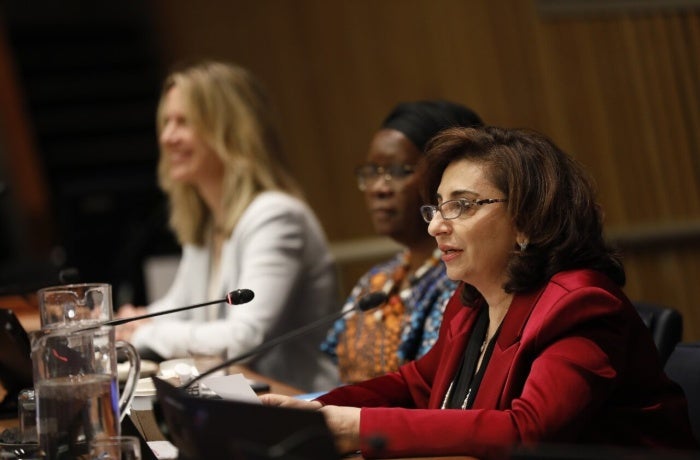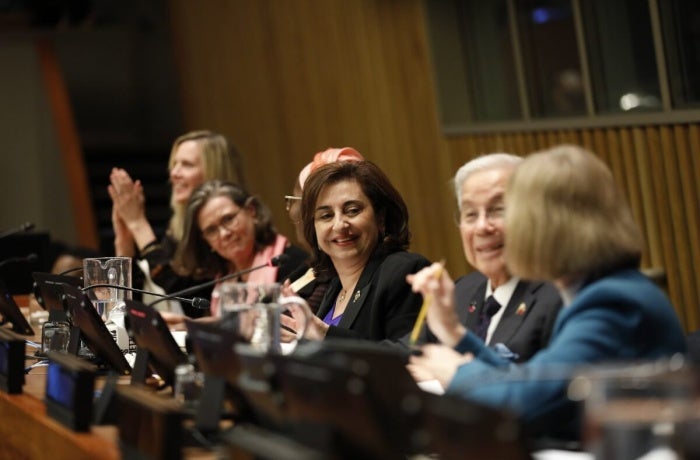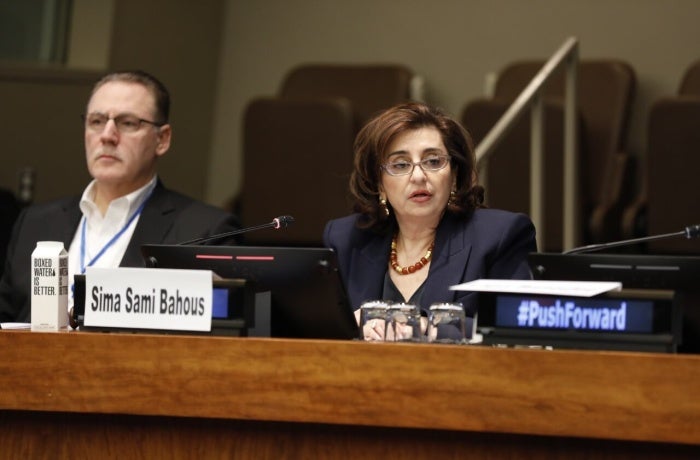Your guide to CSW68
Everything you need to know about the largest global gathering on gender equality and the empowerment of women and girls at the United Nations.
The 68th session of the Commission on the Status of (CSW68) will take place from 11 - 22 March under the priority theme: “Accelerating the achievement of gender equality and the empowerment of all women and girls by addressing poverty and strengthening institutions and financing with a gender perspective”.
Held in New York every year, CSW is the largest global gathering of civil society representatives, government officials, policy makers and experts to take stock of progress on gender equality, discuss pressing issues and agree on actions to transform the lives of women and girls everywhere.
The Commission consists of a wide range of meetings, panel discussions, interactive dialogues, ministerial round tables, intergovernmental negotiations, and more. It is a one-of-a-kind platform for feminists from around the world to advocate, learn and share experiences.
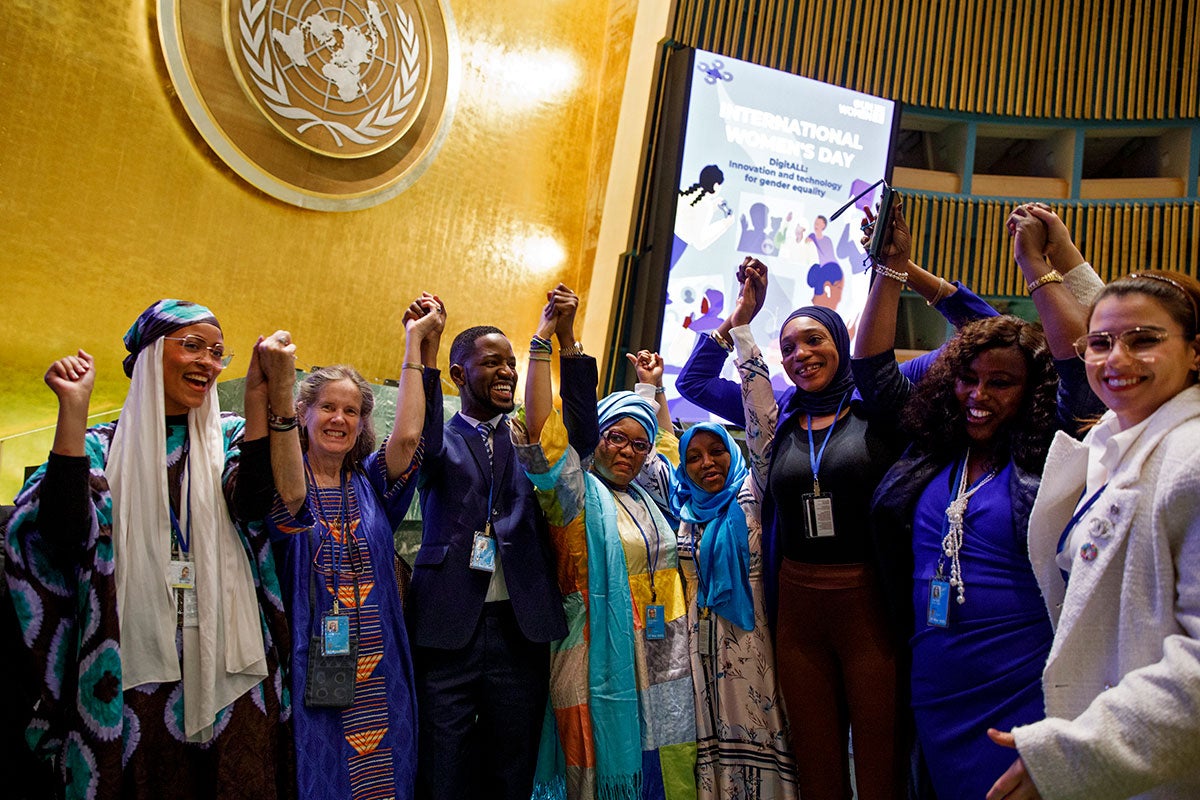
What’s on the agenda for CSW68?
The Commission will open the session on the morning of 11 March, elect officers and begin to discuss how to address women’s poverty, strengthen institutions and increase investment to accelerate progress on gender equality.
It is urgent to accelerate progress: latest data shows that 10.3 per cent of the world’s women live in extreme poverty, and they are poorer than men. Progress towards ending poverty needs to be 26 times faster to achieve the Sustainable Development Goals by 2030.
Over the next two weeks, the Commission will discuss best practices and policies to address the gender-poverty gap and to lift both women and men from poverty and foster just and sustainable economic development for nations. Representatives from non-governmental organizations will deliver statements on these critical issues; youth will participate in dialogues with decision-makers and present their recommendations.
By the end of the second week, the Commission will agree upon a set of actions and recommendations that will serve as the blueprint for improving the lives of women and girls by reducing their time and income poverty and boosting their leadership.
In tandem with the Commission’s session, Member States, UN entities and NGOs will host hundreds of side events to rally around critical gender equality issues.
The full list of side events is available here.
For key events organized by UN Women, visit https://www.unwomen.org/en/csw
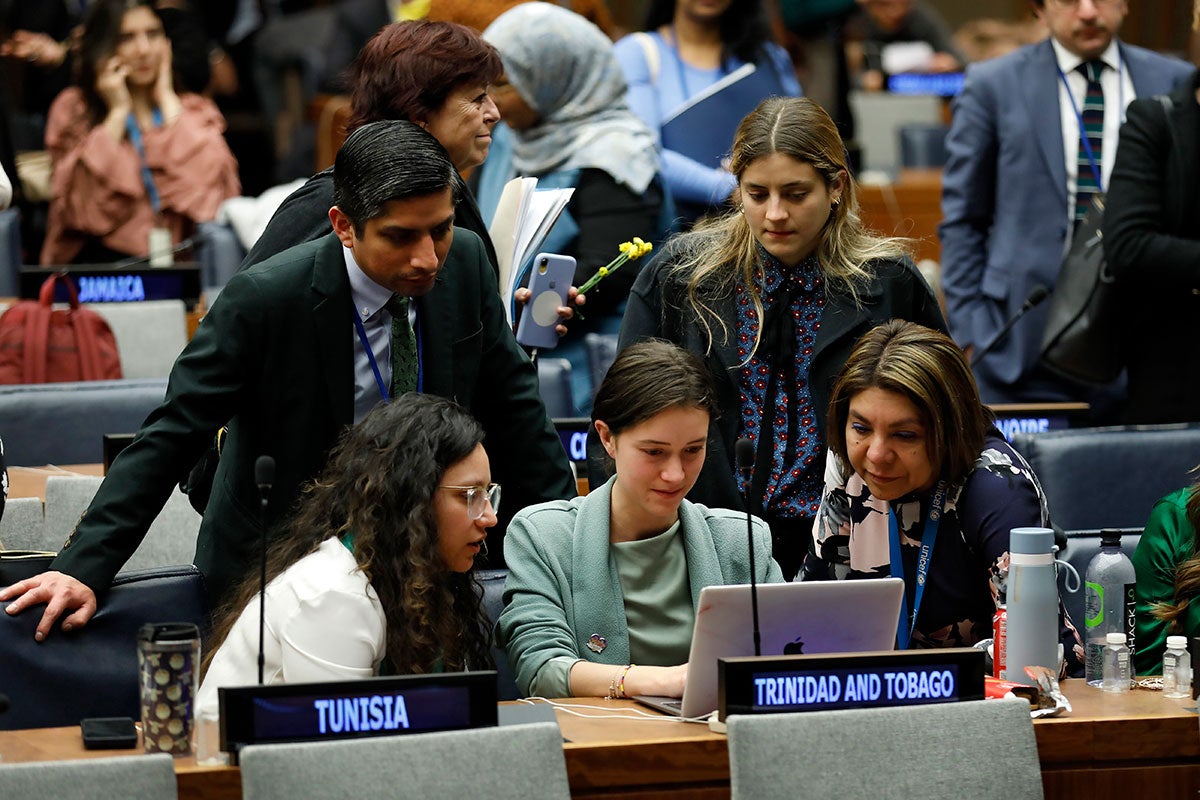
Why is CSW relevant today?
The world is at least 131 years away from closing the gender equality gap. Women and girls around the world continue to face disproportionate burdens, gender biases and systemic discrimination, which hinder their autonomy, deny them equal opportunities and obstruct their fundamental human rights.
CSW68 is a key moment to take stock of some of the most pressing issues and emerging challenges that are holding back progress on gender equality and build consensus on policies and action that can reduce the disparities in wealth, income, and access to opportunities that women and girls face.
Women’s poverty has stark implications for the Sustainable Development Agenda. If current trends continue, some 342 million women worldwide will live in extreme poverty in 2030. Poverty increases the risk of violence against women and girls, limits education and employment opportunities, as well as their access to health care and financial inclusion. In turn, these factors keep women poorer.
With rising conflicts, climate and humanitarian crises, women are the first to absorb the deepest shocks, lose their income, and take on more unpaid care and domestic work. Women and girls living in fragile contexts are nearly 8 times more likely to live in extreme poverty.
Despite the clear need for investing in gender equality, financial investment in women remains alarmingly low. Data from 48 development economies shows that an additional $360 billion is needed per year to achieve gender equality and women’s empowerment.
Burdened by debt, more countries, often the poorest, are unable to spend on essential public services that poor women and girls depend on. In the meantime, women’s organizations that are vital to advancing and protecting women’s rights, get insufficient financial aid. Less than one percent of the official development assistance (ODA) is going to organizations advocating for women’s rights.
These gender equality gaps are not inevitable. CSW68 will be an opportunity for Member States, civil society and experts to discuss and agree on actions to increase investment in policies and programmes that address gender inequalities and boost women’s agency and leadership.
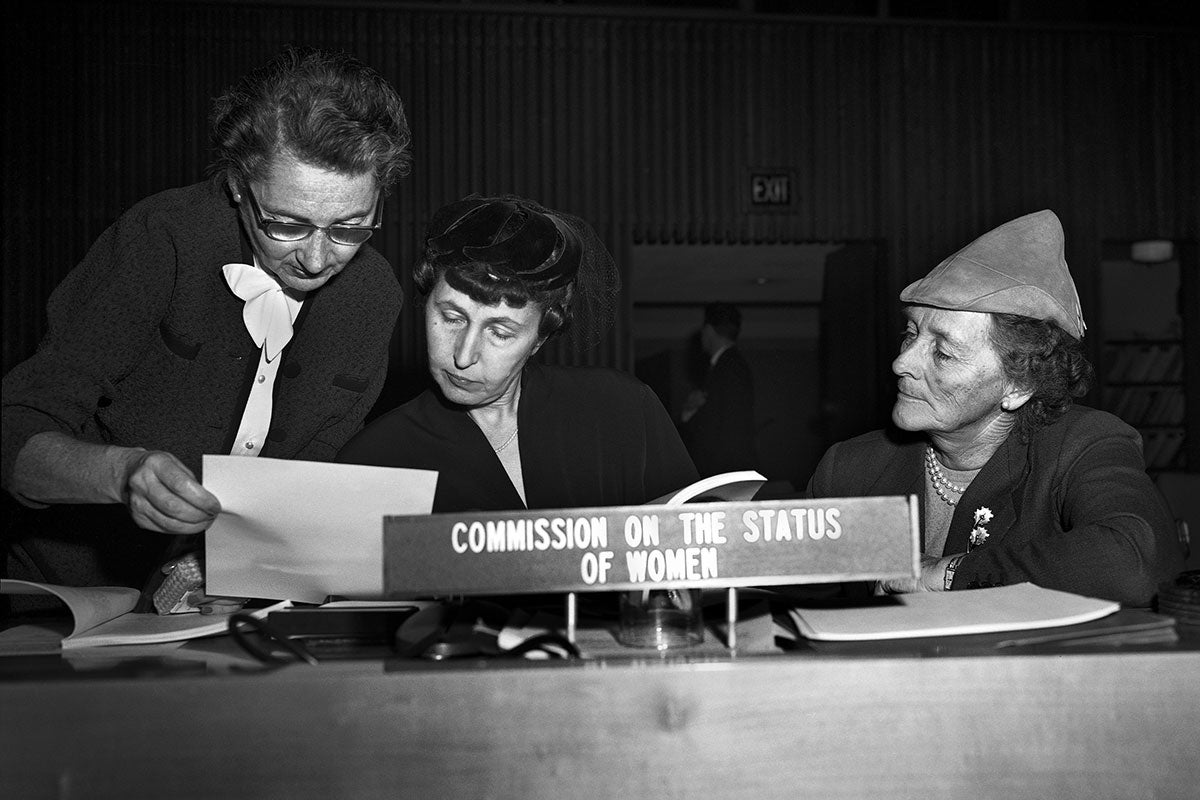
What’s the history of CSW?
The first Commission on the Status of Women convened in 1947, just two years after the founding of the United Nations, when a group of 15 women representing governments from around the world met in New York to begin building the international legal foundations of gender equality.
These trailblazing women leaders took on projects to raise global awareness of women’s issues and change discriminatory legislation. The Commission contributed to the drafting of the Universal Declaration of Human Rights, argued against references to “men” as a synonym for humanity, and negotiated more gender-inclusive language. It drafted the early international conventions on the political rights of women, women’s rights in marriage, the right to equal pay for work of equal value and more. In the following decades, the Commission organized four World Conferences on Women and established several UN offices dedicated to various aspects of women’s rights (which merged to form UN Women in 2011).
To learn more about the Commission’s history, progress and roles, click here.
More resources
The 68th Session of the Commission on the Status of Women (CSW68)






